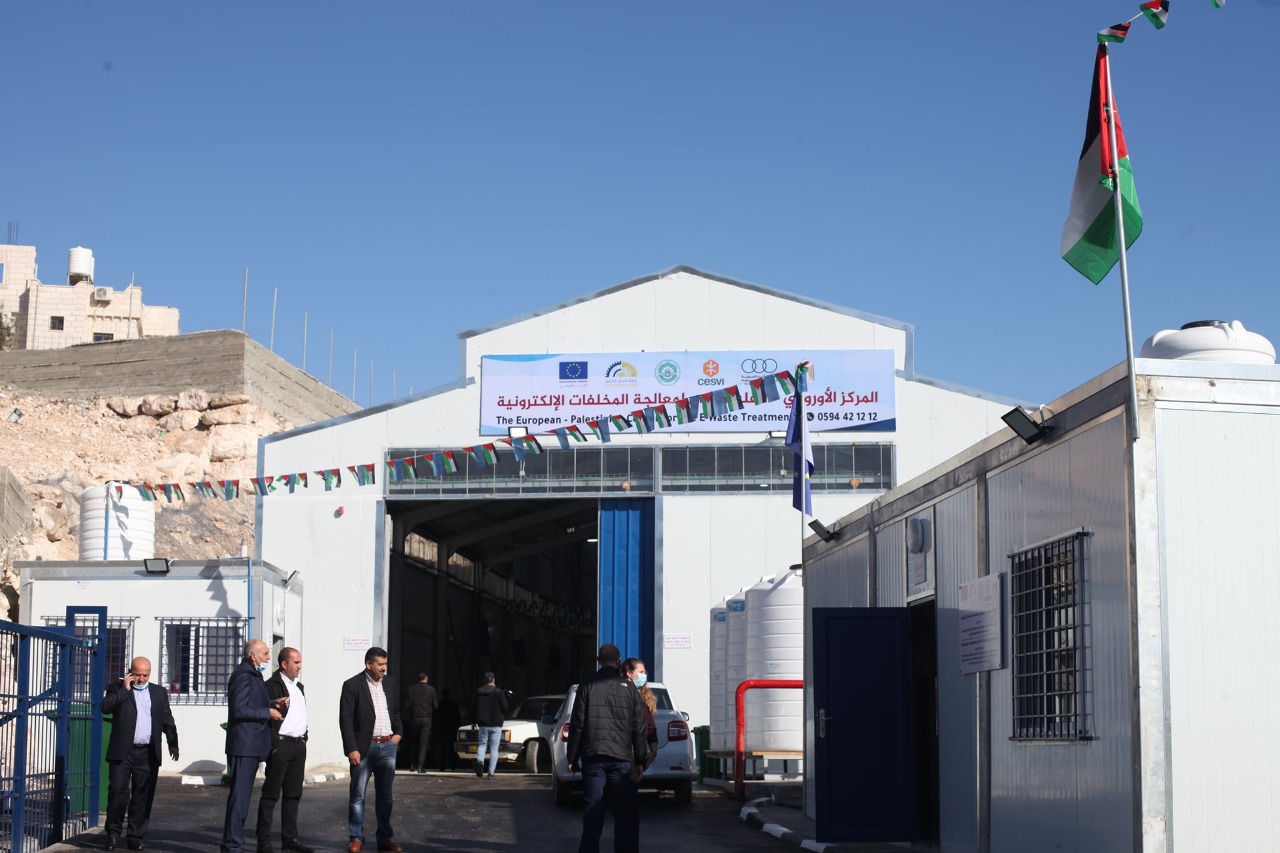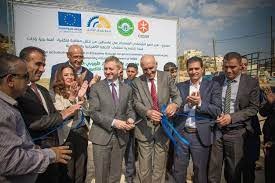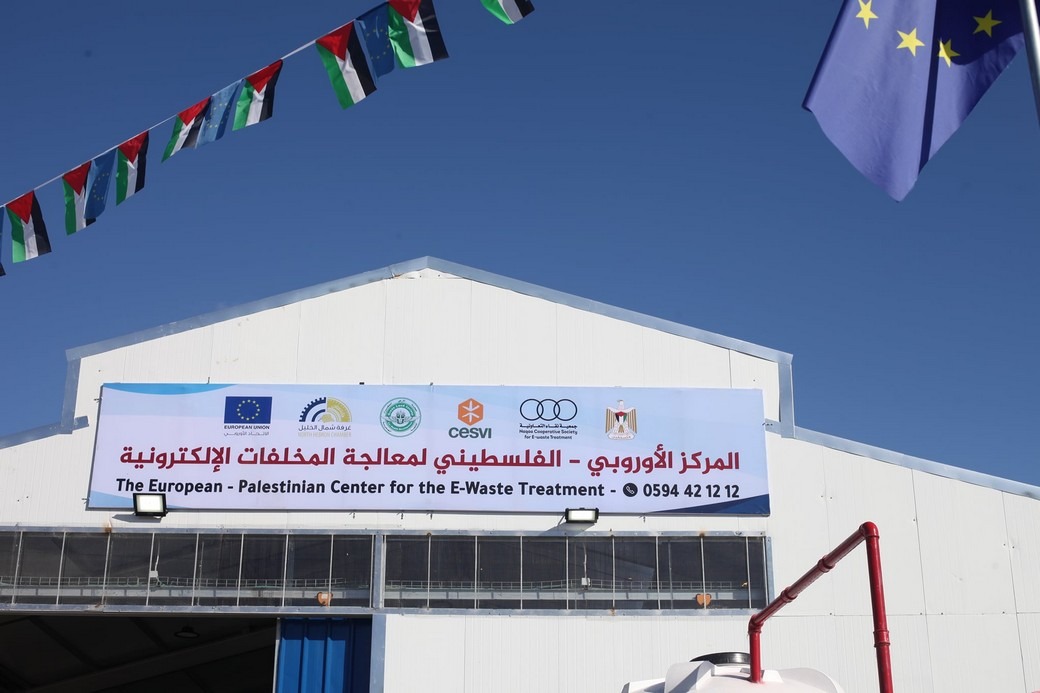Environmental projects
The Green Land Society for Health Development (GLSHD) identifies environmental awareness and intervention as one of its core objectives. In response to growing environmental challenges in Palestine, GLSHD has implemented several impactful projects aimed at fostering sustainable practices and promoting ecological responsibility within communities.
Establishment of the European-Palestinian Center for Electronic Waste Recycling (ETHNA)
With generous funding from the European Union (EUR 1.6 million) and in collaboration with CEZVY and the North Hebron Chamber of Commerce, GLSHD led the establishment of the European-Palestinian Center for Electronic Waste Recycling (ETHNA) — a pioneering initiative addressing the environmental and health hazards of informal e-waste processing.
The project involved the development of a fully equipped recycling cooperative on more than 10 dunums of dedicated land, providing a structured and environmentally responsible alternative to cable burning and informal dismantling practices. The center was outfitted with advanced stripping machines and recycling equipment, allowing electronic waste collectors to safely extract materials (e.g., copper) without releasing harmful emissions.
Key objectives and outcomes of the project include:
Protecting the environment and surrounding communities from toxic emissions
Providing dignified, safe, and sustainable livelihoods for electronic waste workers
Reducing the reliance on harmful open-air burning for cable stripping
Promoting circular economy principles through recycling and reuse
This center serves as a model for sustainable e-waste management and represents a critical step toward formalizing and regulating the informal recycling sector in Palestine. By aligning economic opportunity with environmental protection, GLSHD and its partners have offered a scalable and socially responsible solution to one of the region’s most pressing environmental challenges.




